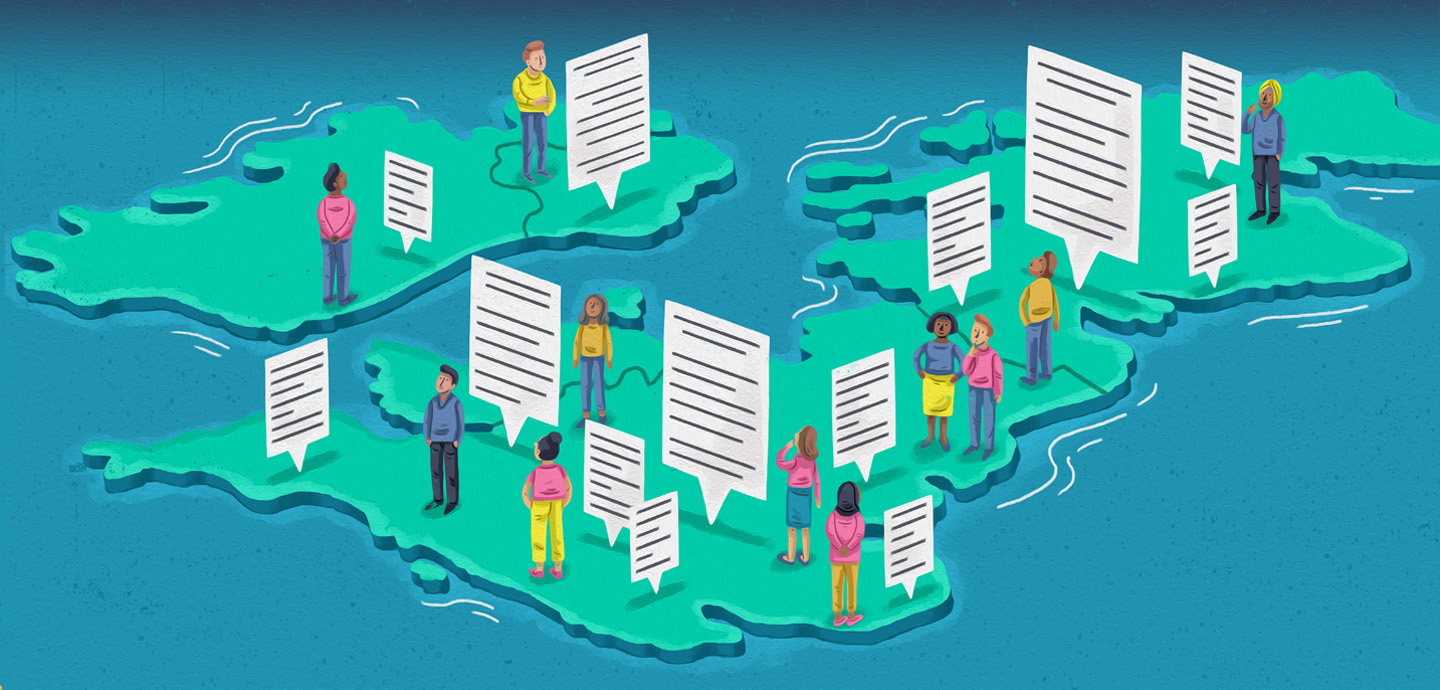
UK-wide Policy
Policy and Influencing across the UK covers topics that affect speech and language therapy across every area of the country.
To find out more about our work across the country and it’s impact , visit our page on policy and influencing
Read about the impact that the PPA team has made over the past few years:
- Policy and Public Affairs Impact report_2023-2024 (PDF)
- PPA team Impact Report 2021/22 (PDF)
- PPA team Impact Report 2020/21 (PDF)
View the results from our latest vacancy and recruitment survey, conducted to identify trends and issues with recruitment in the speech and language therapy profession.
Promoting and implementing inclusive communication
Because people communicate in a variety of different ways, it is imperative that the lived environment supports this. By adopting inclusive communication, societies can show how they value, respect and include people with communication support needs.
Our aim is to highlight:
- What RCSLT means by inclusive communication and why its implementation is vital.
- Professional, regulatory, legal and human rights reasons why you have a responsibility, wherever you work, to promote and support the implementation of inclusive communication at individual, service and population levels.
- Evidence and resources you can use in collaboration with others to make sure inclusive communication is put into practise.
Read more about inclusive communication
Other relevant sections on RCSLT website
See also the RCSLT Policy Twitter handle @rcsltpolicy.
Inclusive communication for all

Communication disabilities affect millions of people. Up to 14 million people in the UK (20% of the population) will experience communication difficulties at some point in their lives, with more than 10% of children having a long-term communication need.
Communication Access UK is an initiative, developed in partnership with charities and organisations, that shares a vision to improve the lives of people with communication difficulties.
Led by the RCSLT, the partnership includes:
- Stroke Association
- Headway
- MND Association
- Disability Rights UK
- Business Disability Forum
- Communication Matters
- The Makaton Charity
- National Network of Parent Carer Forums
Together, we’ve developed the Communication Access Symbol; a new disability access symbol underpinned by a completely free training package and standards. We hope that these will help you, and your businesses or organisations, to better support people with communication difficulties.
The impact of communication disability
Communication does not simply concern the ability to speak but, also, the ability to hear and understand what is being said.
The impact of communication difficulties and disabilities is varied; some people may find it hard to ask a question, name an object or ask for help, while others may have speech difficulties that make them difficult to understand.
Other people may have problems processing information, as well as difficulties with reading and writing. Some may use communication devices and require time to create their message.
Communication disabilities leave millions without a voice, denying them equality of access and opportunity.
A symbol for equality
The Communication Access Symbol has been developed to identify businesses and organisations whose staff have undergone training to help them to better support the needs of people with communication difficulties.
Businesses and organisations whose staff have taken the training will be accredited as communication accessible and will be permitted to display the Communication Access Symbol.
Anyone can sign up to Communication Access UK and complete the free training, from corporate businesses and large organisations to local shops and individuals.
How to get involved
To learn more about the initiative, or to sign up, visit the Communication Access UK website.
The partnership
The Communication Access UK steering group is chaired by the Royal College of Speech and Language Therapists and comprises the RCSLT and the following charities and organisations:



